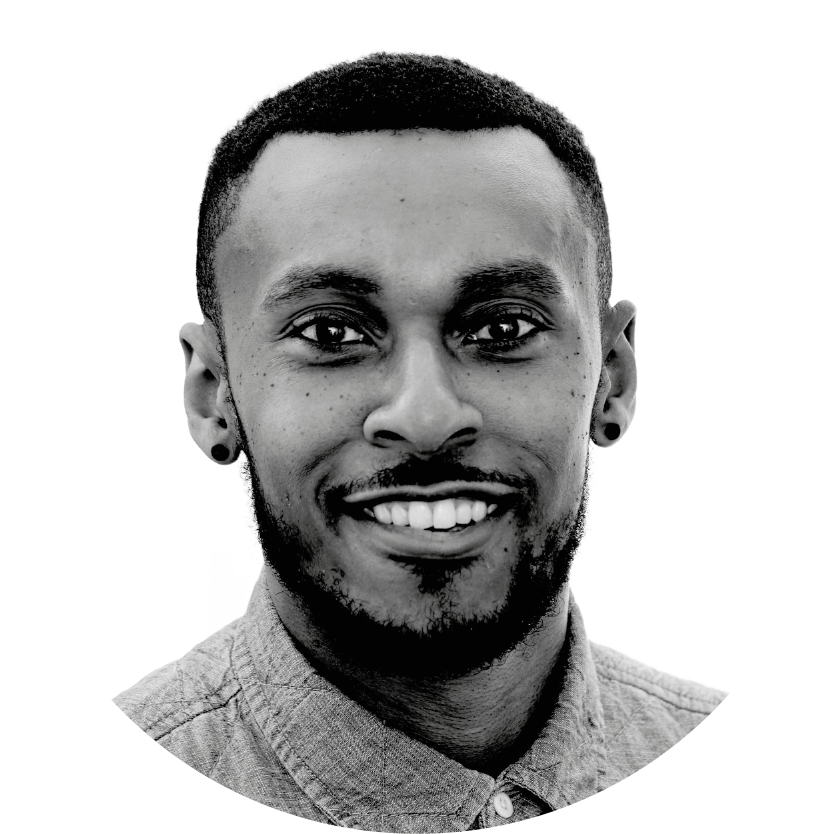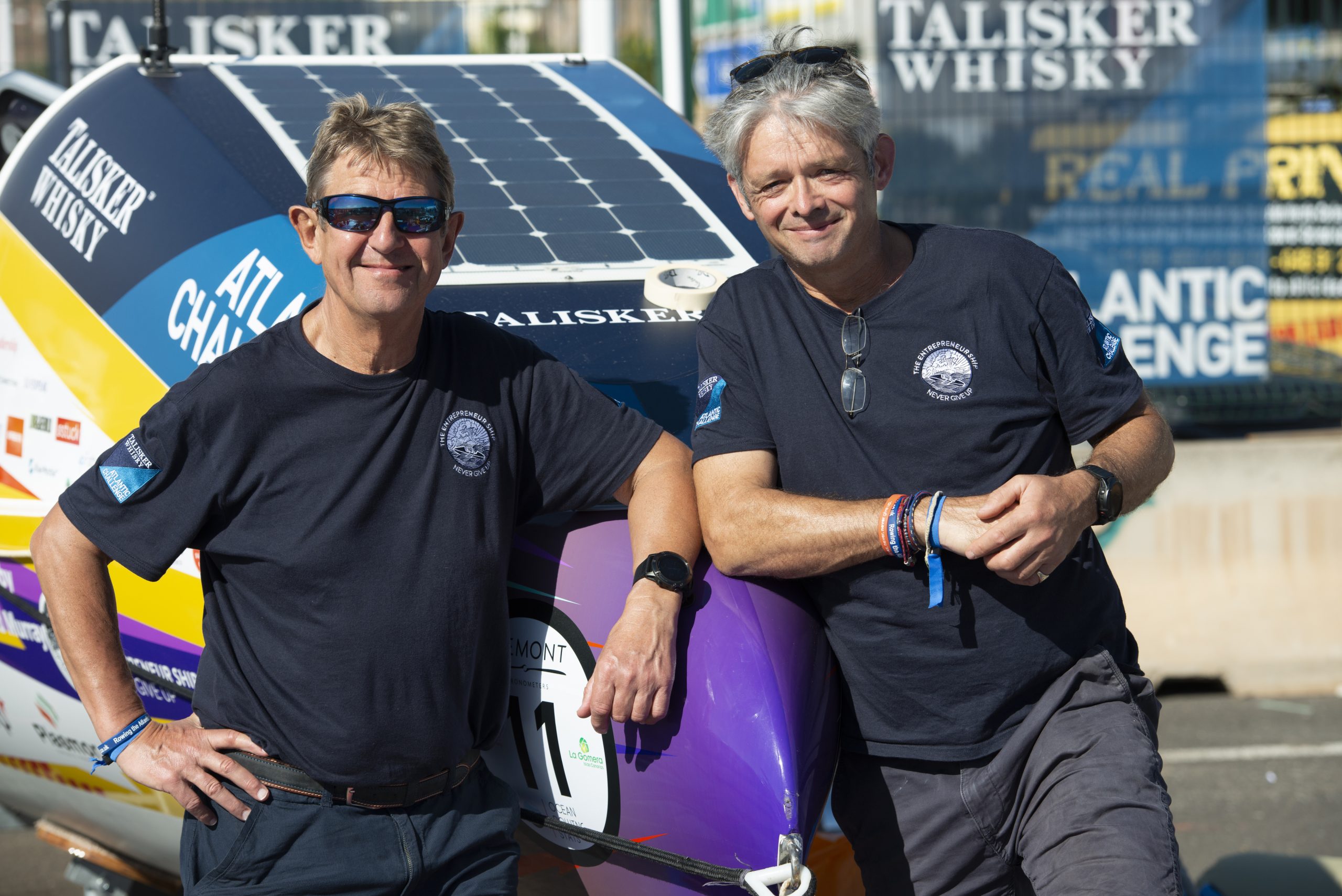Entrepreneur-cum-interviewer of entrepreneurs, Ollie Forsyth, recently visited the FieldHouse office. He shared insights into the art of building a network that includes founders of Netflix, Carphone Warehouse, and YO! Sushi, as well as the importance of taking care of your mental health while declaring that taking pride in overworking yourself “is bollocks”
Image: Ollie Forsyth poses with Netflix co-founder Marc Randolph
We recently had the pleasure of a visit to FieldHouse HQ from the (distressingly) young entrepreneur Ollie Forsyth, who swung by to both check out our new Seven Dials digs and have a catchup with the team. As we all stuffed ourselves full of wraps from Pure, Forsyth regaled us with stories from his past and present with a sprinkling of thoughts on the future.
Aged just 21 now, you might wonder what wisdom he has to impart. But, given the fact he opened up his first business at the age of 13 – he says the early venture was “similar to Not on the High Street” – he’s been at it for a while. After the group session, he and I sat down for a separate conversation to dive deeper on some of the points he made.
Reflecting on where his journey began – the classroom – Forsyth told me: “My history teacher was wearing a friendship bracelet, and I went back home and found out these were £120 to buy.” The expense left him blown away, he had the quintessential lightbulb moment, and his entrepreneurial streak kicked in. “I thought ‘Holy moly, we’ve got to get these cheaper’. I got in touch with ten suppliers around the world who did similar ones, not exactly the same, and I basically said ‘I’m 25 years old and starting a new company – if you send me ten samples, I will buy 1,000 products off you.’”
This product-testing experiment resulted in Forsyth getting 100 items for free as all ten suppliers sent goods, allowing him to assess the quality of the merchandise while making a tidy sum of £1,000 in the process from the sale of the sample bracelets at £10 each. Although nine out of ten providers weren’t up to scratch, the tenth supplier hit the mark and became Forsyth’s partner for the duration of his Ollie’s Shop online venture. “I think in the first year I made 25 to 30 grand at 13,” he recalls. Refusing to cut corners, he paid the tax and began to scale – selling belts, wallets, cufflinks and anything else that could complement the initial offering of bracelets.
Although he continued going to school while growing his ecommerce empire and focused on his exams, Forsyth admits he didn’t walk away with any certificates. “I do not have any qualifications,” he says. “I couldn’t even read until I was 15,” Forsyth adds, a nod to his dyslexia. Although the company seemed to be operating well, by 17 he decided to call it a day, admitting there was one crucial problem preventing it from going any further. “The biggest flaw with that business was that it’s seasonal,” he reveals. “All of our selling started about September time, so basically you had nine months of no revenue in the business – terrible.”
Given his youth was such a hot topic of conversation, Ollie’s Shop was doing well in the press and generating lots of coverage. Forsyth even ended up on the This Morning sofa, sandwiched between Ruth and Eamonn. All the publicity led Forsyth to enter the media world himself, recognising that other young innovators needed encouraging. “So, at the age of 16 I launched an online magazine called The Budding Entrepreneur Magazine – that grew to 50,000 readers in the first year,” he details.
Seeking out interesting entrepreneurs, the requirements were that those featured needed to have founded cool and interesting companies. “Because I’m dyslexic and can’t really write very well, I got in touch with university journalism courses and the deal was that their students got great exposure to entrepreneurs and networks and then wrote for free,” says Forsyth. “We had one girl called Megan who came and did some work. She now writes for OK! Magazine. It’s just small things like that [which spur me on] – even if it changes one person’s life, I’m very happy with that.”
After a couple of years focusing on The Budding Entrepreneur Magazine, Forsyth decided to go back into education. However, he claims it wasn’t all it was cracked up to be. “I went to business school for a year and learnt absolutely nothing, quite frankly,” says Forsyth. “What I didn’t get about business school is they teach you all the waffle – they don’t teach you all the nitty-gritty stuff which is what they advertise the course to be.”
Forsyth has a couple of long-term ambitions, including solving loneliness for elderly people and repairing the education system, with the latter goal heightened somewhat after he walked away feeling hard done by. “How can people come out of university – and my brother is going through this now – with £50-60,000 of debt?” he opines. “And secondly, they’re in so much debt but the university hasn’t taught them how to get out of that debt.”
Deciding higher education wasn’t for him, Forsyth put his efforts back into entrepreneurship. “I looked at different ways that we can build communities,” he recalls. “We tried networking for young entrepreneurs, [but] young entrepreneurs, to be honest, have no money, and I was always very focused on following the money. If you didn’t have any revenue in the business, you didn’t have a business.” Having learnt from the past with the cashflow gap from Ollie’s Shop and then working with youngsters, he came to understand that a continual stream of income is the best way to manage operations. Forsyth today has a firmer strategy in place. “Now we look at things where [we can say], ‘Let’s make sure you get guaranteed revenue.’” And he believed networking was the way to do that.
Working out his next move over the course of nine months, Forsyth realised what form it would take – a podcast. “I did about six months of pre-recordings, launched in July last year, and it has a lot of listeners,” he says, adding that “a lot” is equivalent to 80,000 a week. What’s the draw though? Well, The Makers Podcast doesn’t have just anyone along to talk shop. “The idea was to interview the most high-profile entrepreneurs to find out how they screwed up, because, frankly, entrepreneurs don’t talk about that enough – especially [for] young entrepreneurs coming through, and scaleup entrepreneurs, who are likely to make the same mistakes.”
His first guest was Eve Sleep co-founder and ex-CEO Jas Bagniewski, and more recently he’s spoken with Netflix co-founder Marc Randolph, with the likes of Facebook COO Sheryl Sandberg and Spotify’s Daniel Ek also in his sights. How has he managed to build a network packed with such A-list business talent though? It’s all about nurturing your contacts, he offers. “To be honest, you’ve just got to be really good with people,” he says. A master of his craft, Forsyth encourages all guests on the podcast to introduce him to another founder, which ensures an endless cascade of entrepreneurs to access.
Admittedly, it’s taken time to get to this stage of having household names on his phone. He’s known many of the contacts for a handful of years, and his network-building of course started when he was 13, so it’s been a process over a period of almost ten years.
However, Forsyth has an incredible tip for nurturing the network. “Just keep in touch with them,” he says of acquaintances. “It doesn’t have to be every day or month, just maybe a couple of times a year. Just say ‘Hey, how are you?’ Tell them about your new setup. Because at some point they’ll know people I want to connect with, and probably vice versa at some stage as well. If you can be really good with people, you can build a really cool community, and if people like you they’ll stay in touch.”
Given that he’s sat down with such well-known individuals, picking out the standout interviewees is a challenge, but one to which Forsyth has a response. “Two people who I really enjoyed interviewing were the co-founder of Netflix, Marc Randolph, and John Vincent, co-founder of Leon Restaurants,” he says. “The nicest guy though, was Julian Richer, the Richer Sounds founder.” Nice is one way of putting it – to mark his 60th birthday earlier this year, Richer put 60 per cent of his company shares into a trust for his 530 staff members, with workers receiving £1,000 for each year of their employment. “I was 20 minutes early at his flat in Piccadilly and, quids in, he actually walked out and said, ‘Hey Ollie, come in’. And you know when you just have that personal connection with someone? I keep in touch with him on a weekly basis, he’s just the nicest guy.”
With the nature of the podcast focusing on mistakes and struggles, Forsyth says a lot of entrepreneurs claim they should have started earlier. But a key thing he found most interesting is that many also seem to struggle to find a co-founder. “It’s a very lonely journey, you’re going to go through a lot of ups and downs along the way, and it’s much better to ride a journey with somebody else to share those hard feelings, as they can pick you up the next day,” he says. “It’s also very important to have a mentor outside of the family – don’t get family and friends involved in mentoring. You need somebody in the same mindset as you [to] take through the journeys as well.”
As for his own difficulties as a founder? Forsyth has experienced some on an intense level. “I used to get incredibly stressed about small things,” he reflects on his mental health. “But I’ve learnt. Last April was probably the most challenging part of my life. I didn’t know where the business was heading and, basically, I slept two and a half hours a night for four months. And it was two weeks in when I started being sick every day – and this happened for four months.” Noting the impact that had, Forsyth explains that he found his brain just started teaching him to wake up the same time each day after a couple of weeks of poor sleep. “I was going to bed at about 1am, maybe getting up about 3am-4am in the morning and, to be very honest, I thought I was going to have a heart attack.”
After four months of that, he had an epiphany and realised he needed to break the cycle. “I went on holiday for a week just to get away from things. I didn’t take my laptop or anything, and overall thought ‘What’s my purpose?’,” says Forsyth. “So many of these entrepreneurs think ‘[Look at me] I work 19 hours a day, seven days a week,’ which quite frankly is bollocks. You’ve really got to look after yourself, and I think my biggest learning is just don’t get stressed.”
With World Mental Health Day just behind us, coupled with Forsyth revealing his own battles, these should serve as a reminder to ensure that self-care is a destination on the road to achieving scale. Case in point, we at the office were left surprised when a masseuse was booked in to see us on World Mental Health Day, giving everyone the chance to take some time out, beyond their usual lunch break, to breathe and unwind, which is all too easy to neglect in the day-to-day of working life, whether you’re an entrepreneur, investor, or professional.
These days, Forsyth has a set schedule in place to keep him on track. Focusing on “high IQ stuff” in the morning means he can hit the ground running without running himself into the ground until he clocks off. “I get into the office about 9am, sometimes 10am, but it’s about quality not quantity,” he insists. “If I can really put all my efforts into a seven- or eight-hour day then I’m happy. People will just burn out [otherwise and] there’s no point.”




